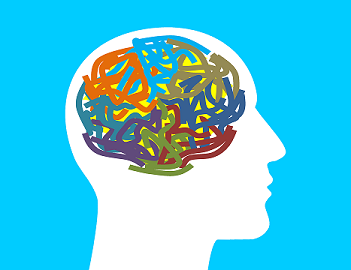
Maansik Viklangta – Mental retardation is a problem that affects the development of anyone. This problem appears during the developmental years i.e. 0 to 18 years of the child. A child struggling with this problem has much lower learning ability and intelligence than other children of his age. Due to this inability, the victims are also unable to function normally. This problem exists in the victim since birth or from childhood. There are many reasons for this problem and its effect varies from very low to very high. People who are mentally retarded may have problems with many functions, such as –
- Talk with someone
- Take care of yourself
- Daily Life
- Social Skills
- Community contact
- Self-run
- Health & Safety
- School activities
- free time activities
- Do other things etc.
Mental retardation in a child is tested by a psychologist or pediatrician. There is no cure for mental retardation. Mental retardation patients require special care, and doctors meet the same needs to ensure that the patient can learn as much as possible and make the best use of the abilities in them.
Also Read – Know These 3 Important points about Mental Health
Mental Retardation Symptoms:
What can be the symptoms of mental retardation?
- Failure to achieve intellectual development.
- Failure to show signs of development according to your age like crawling, walking, sitting and talking etc.
- Lack of curiosity and difficulty in solving problems.
- Having difficulty remembering things.
- Inability to meet school-related educational demands.
- Being childlike, this behavior is usually displayed by the patient’s way of speaking. Also, not understanding social rules is also a symptom of this.
When should you see the doctor?
If you find that your child is delaying walking, speaking and other muscular activities or learning them, see a doctor.
Classification and types of mental retardation:
What are the types of mental retardation?
There are four main classes of mental retardation. All of these levels are given to the victim based on their performance in a standardized IQ test (IQ test). Along with this, it is also tested how quickly the victims are able to learn things like talking or social interaction.
- Mild or extremely low mental retardation –
People with mental retardation having a maximum IQ level of 55 to 69 are considered to have mild mental retardation. Children with mild mental retardation often do not know the problem until they are well into their school years. They are slower to walk, talk and eat themselves than most other children. From fourth to sixth grade they learn many practical skills including reading and mathematics. People with mild mental retardation usually learn the skills of social and job related tasks and can live on their own without any help.
- Moderate mental retardation –
People with Mansingh retardation are those whose IQ ranges from 40 to 54. Children who suffer from moderate mental retardation are able to start their physical muscle functions or speaking etc. much later. Although these victims are unlikely to acquire useful academic skills, they can learn some health and safety habits, basic talking and other common skills. They cannot learn to read and solve mathematics. People with moderate mental retardation usually do not live alone, but they can do some simple tasks and travel alone to familiar places.
- Severe mental retardation –
People with mental retardation, who have a minimum IQ of 20 to 39, are considered to have severe mental retardation. Their condition is examined at birth or shortly after. Before the age of going to school, they begin to see the delay in muscle functions and the ability to talk very rarely. With the help of training, they can learn some self-help skills, such as how to eat and bathe themselves. They usually learn to walk and grow and understand certain things in a basic way. By adulthood, people with this severe mental retardation may be able to follow the rules of daily routine and perform some simple tasks. But these adults need to be guided and live in a safe environment.
- Profound mental retardation –
Among people with mental retardation, there are only a few people whose IQ levels range from 0 to 24, which is considered a profound mental problem. Their problem is usually known only at the time of their birth and there is a need to keep these children in nursing care. Children who suffer from severe mental retardation need to be kept under constant supervision. These children show delays in all aspects of their development. With the help of training, these children learn to use their legs, hands and jaws etc. Adults with severe mental retardation learn to talk a little and may even learn to walk a little. People suffering from this disorder are unable to take care of themselves and need complete support in their daily life.

Causes of intellectual disability (mental retardation) –
Why does mental retardation occur?
Prenatal causes (preterm birth)
If either or both of the parents of a child is a victim of mental retardation, the chances of developing this condition in the child are greatly increased. Sometimes mental retardation is also due to some abnormality in chromosomes rather than individual genes. The chromosome has a thread-like structure in the nucleus within the cells, in which the gene is located. Down syndrome is one of the most common causes of mental retardation, which is caused by extra chromosomes in cells.
Also Read – Know These 3 Important points about Mental Health
- Cerebral malformation
- Microcephaly
- Hydrocephalus
- Nutritional deficiency, such as
- deficiency of Iodine
- Vitamin B9 deficiency
- Severe malnutrition
- Substance abuse, such as
- Alcohol (read more – home remedies to get rid of alcohol addiction )
- Nicotine ( cigarette and tobacco etc.)
- Cocaine
- Exposure to harmful substances
- Pollutant
- Heavy metals
- Harmful drugs
- Radiation
- Rh incompatibility
- Pregnancy pregnancy
- High BP in pregnancy
- Excessive bleeding during childbirth
- Placental dysfunction
- During delivery
- Feeling difficulty or complication in delivery
- Being born too early
- Very low birth weight
- Asphyxia from birth (asphyxia)
- Stroke during birth
- Maternal infection
- Rubella
- Toxoplasmosis
- Cytomegalovirus infection
- Syphilis
- HIV
- Maternal disease
- Diabetes
- Heart diseases
- Kidney diseases
- Newborn period:
- Septicemia
- Jaundice
- Hypoglycemia
- Neonatal convulsions
- Infancy and childhood
- Brain infections like
- TB
- Japanese encephalitis
- Bacterial meningitis
- Head trauma
- Long-term exposure to lead
- Long severe malnutrition have been victims of
- Obstruction of oxygen supply in the brain etc.
- Brain infections like
- Chromosomal disorder –
- Down syndrome
- Kleinfelter’s syndrome
